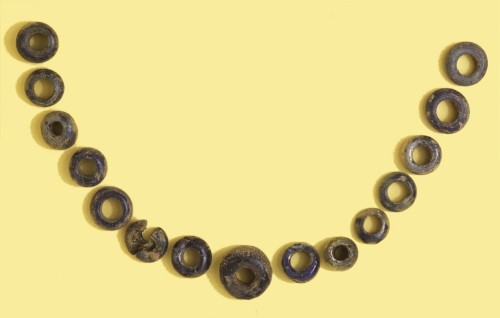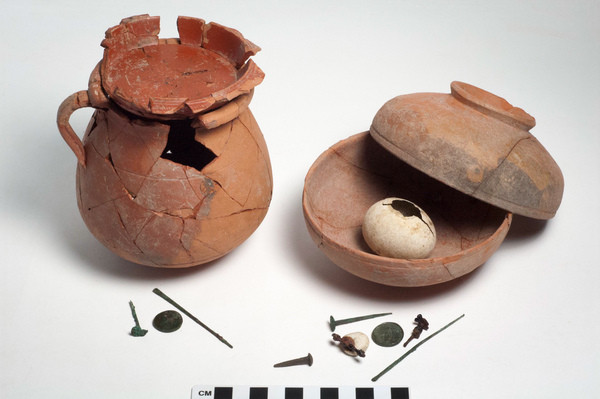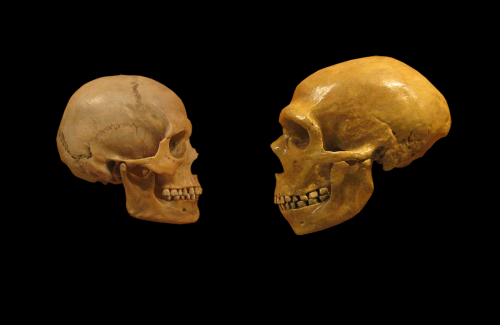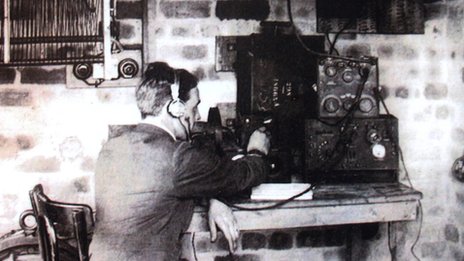Category: News
-

1,400 year old Saxon burial found in Haddenham, England
During the construction of a residential area within the village of Haddenham an early Saxon burial (6th century AD) was uncovered. Archaeologists found nine burials in total, with plenty of grave goods. Both men and women were buried here. Their religious background seems a bit mysterious, as the grave goods (like a decorative shield, a…
-

Rare archaeological find in Sardis
The legendary rich king Croesus made Sardis, the capital of Lydia (modern Turkey), famous. Even after more than 2500 years, his fabled wealth gives the ancient city a golden aura. After all, Sardis was the city where coinage was invented. After Croesus’ age, in the early 6th century BC, Sardis was occupied by the Persians,…
-

Carolingian church discovered in Germany
German archaeologists have found the remains of Germany’s second oldest church within the Mainz-cathedral (picture). This roman cathedral itself is already 1,000 years old, but the even older remains date back 1,200 years. Deacon AndreasKlodt said this on a press-conference last Tuesday. This newly found cathedral is the only one in Germany that was built during the Carolingian age. It…
-

Ancient Greek plays give insight in antique climate
Ancient Greek plays offer us an insight into the climate of the time, according to the University of Athens. Researchers thoroughly checked historical observations from 43 plays by Aeschylus, Sophocles, Euripides and Aristophanes for their references to weather. Notably, scientist looked for ‘halcyon days’, days of theatre-friendly weather in mid-winter. On these days, the weather conditions enabled Athenians…
-

Neanderthals talked, just like us
A new research project conducted by the University of New England shows that Neanderthals probably used the spoken word to communicate. This contradicts the view that modern humans are unique in this matter. It was long thought that the Neanderthals simply lacked the necessary cognitive capacity and physical ability for speech. Their extinction, some 30.000…
-

Skincancer forced early humans to develop black skin
Between 1.2 and 1.8 million years ago, early humans developed got a black skin. It was long unclear why this was the case. Some suggested the dark skin gave better protection to acids raids in the East-African desert. But new research suggests that skin cancer forced humans to develop a black skin since having a…
-

MI5 created a fake nazi spy-network during WW2
The British secret service MI5 ran a large network of nazi-sympathizers in Britain during the Second World War. Hundred of people who were willing to spy for nazi Germany were exposed this way. Several secret intelligence documents revealing this were made public today. Secret agents got into contact with know nazi-sympathizers and persuaded them to…